Suan Dusit University (SDU) demonstrates a strong institutional commitment to environmental responsibility and sustainable land management through the implementation of its Policy on Environmental, Energy, and Resource Quality Management. This policy positions the university as a living laboratory for sustainability, integrating teaching, research, and community engagement to foster a learning environment grounded in the principles of the Green University framework. The policy emphasizes compliance with environmental regulations, promotion of the 3R principles (Reduce, Reuse, Recycle), eco-friendly waste management, enhancement of green spaces, and the pursuit of the “Clean & Green University” vision that prioritizes energy efficiency, ecosystem health, and climate action.
In alignment with this institutional policy, SDU has actively organized field-based learning activities that promote the sustainable use of land, biodiversity conservation, and ecosystem restoration. In 2024, two significant initiatives were implemented at the Hom Kachon Farm, Suan Dusit University’s Suphan Buri Campus — a recognized center for sustainable agriculture, environmental education, and green campus development. These initiatives demonstrate how environmental policy is translated into practical actions that cultivate environmental literacy and foster community collaboration.
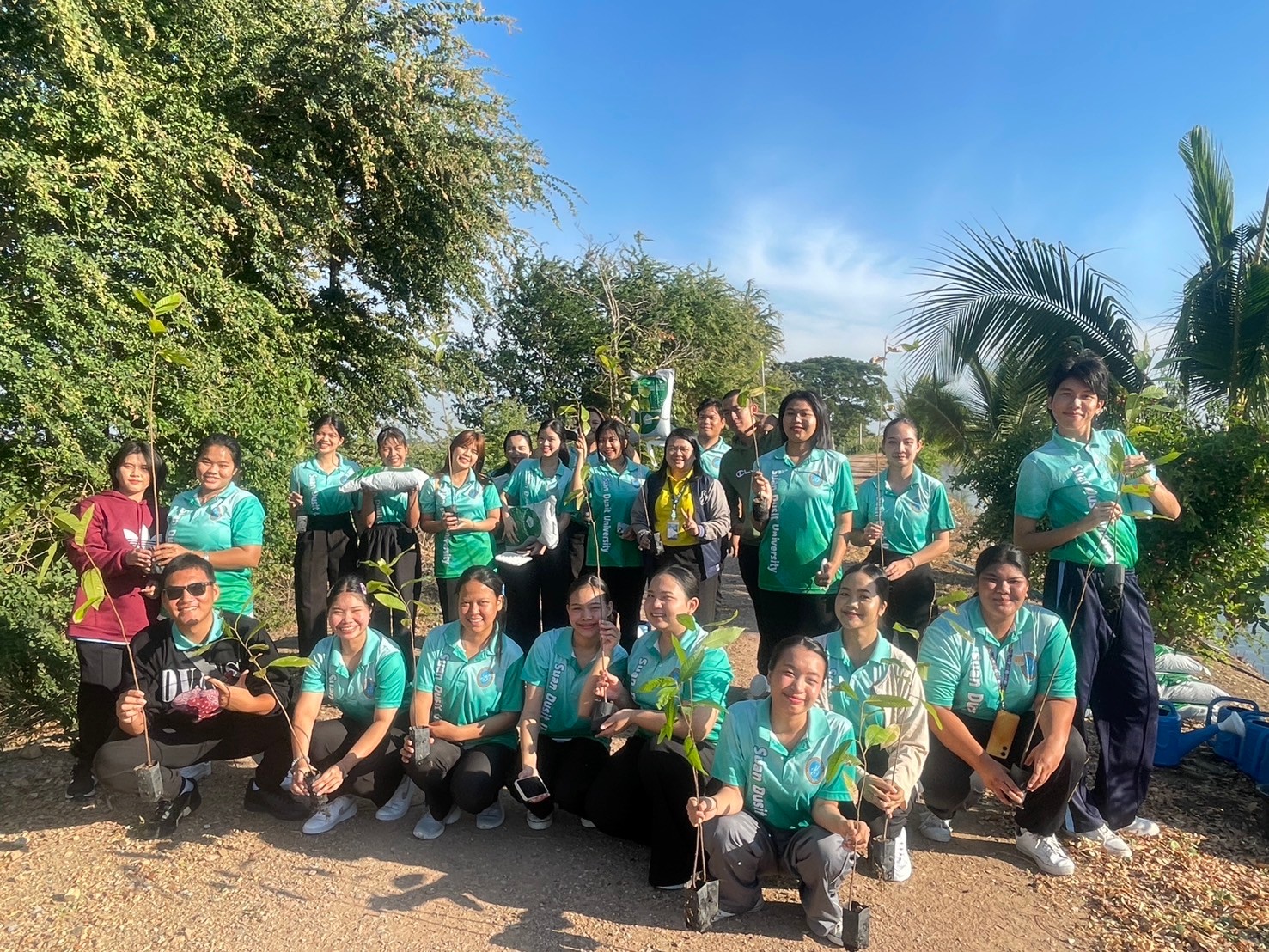
The first initiative, the “Hopea odorata Reforestation and Learning Project”, was held on 16 December 2024 by the Faculty of Education (Primary Education Program). Thirty faculty members and students participated in planting Hopea odorata (Yang Na), a native hardwood species valued for its ecological role in tropical forest ecosystems. The activity focused on forest conservation, afforestation, and green space rehabilitation, allowing students to gain experiential understanding of ecosystem services, soil fertility, and the importance of native species biodiversity. The project embodied the concept of learning by doing within a real ecological setting, nurturing future educators with environmental awareness and stewardship values.
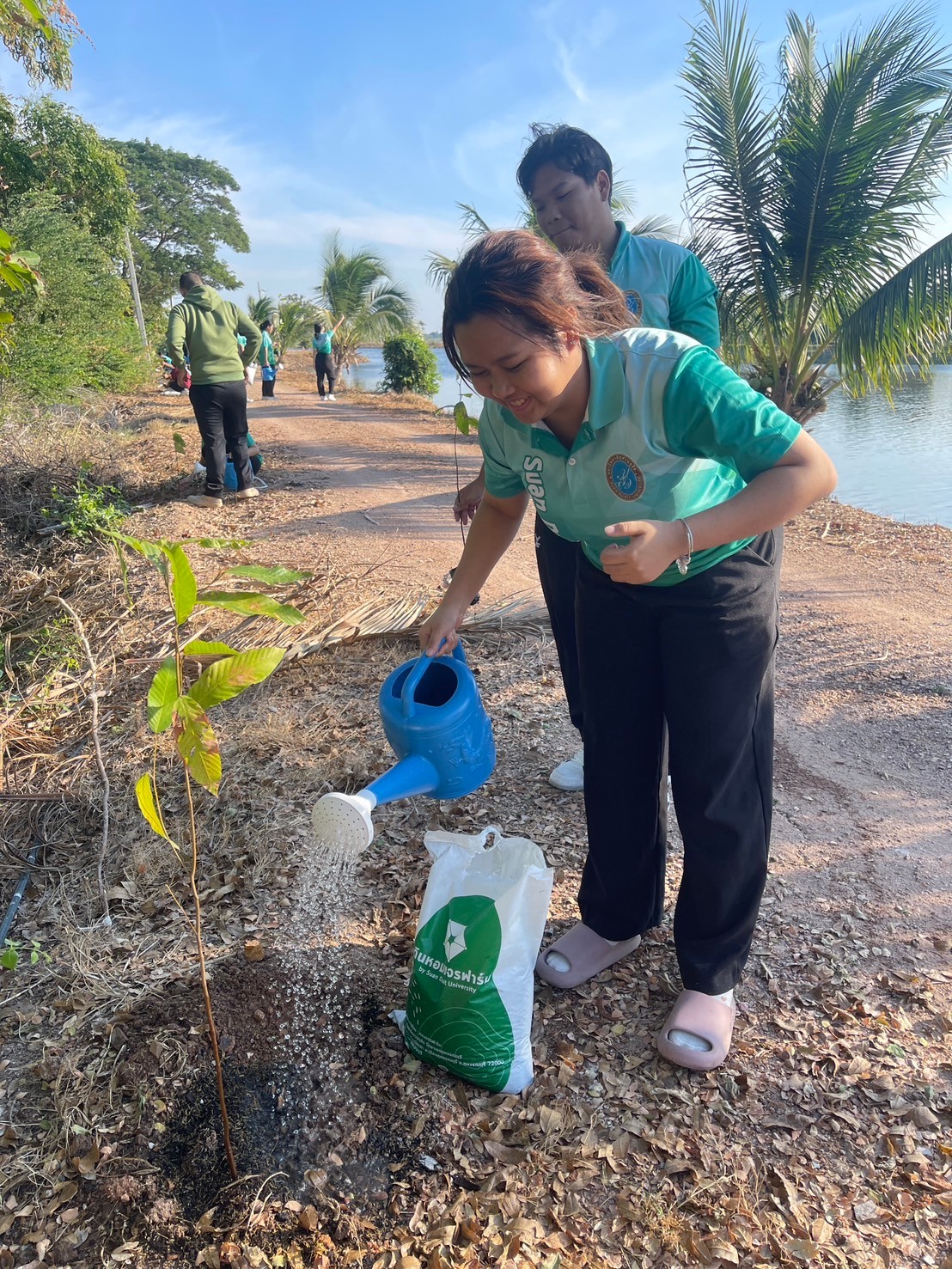

The second initiative, the “Vetiver Grass Planting Project in Commemoration of His Majesty the King’s 72nd Birthday”, took place on 12 July 2024. The event aimed to honor the King’s philosophy of soil and water conservation and sustainable land rehabilitation. Participants planted vetiver grass — known for its ability to prevent soil erosion, improve moisture retention, and restore degraded land — as part of an integrated approach to ecosystem management and nature-based solutions. The initiative promoted environmental education and public understanding of sustainable farming and land preservation practices in line with Thailand’s royal development principles.
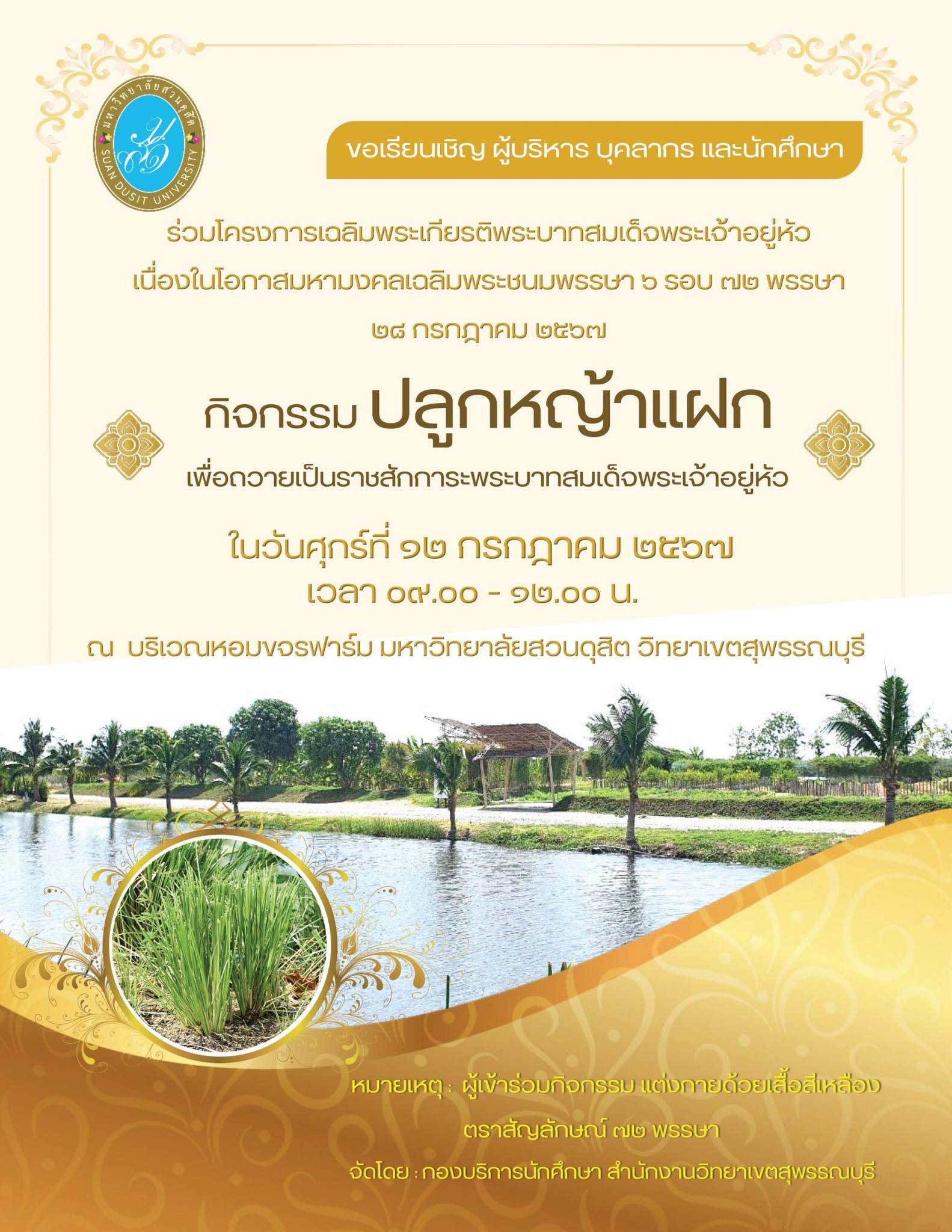
Both activities embody SDU’s role as a University as a Living Laboratory for Sustainability, engaging students, faculty, and the local community in collaborative learning and hands-on environmental action. Through community engagement and service-learning, participants developed a deeper appreciation for sustainable land use, forest protection, and climate resilience in agricultural landscapes. The integration of academic coursework with field experience reinforced the link between education for sustainable development (ESD) and the SDG 15: Life on Landagenda.
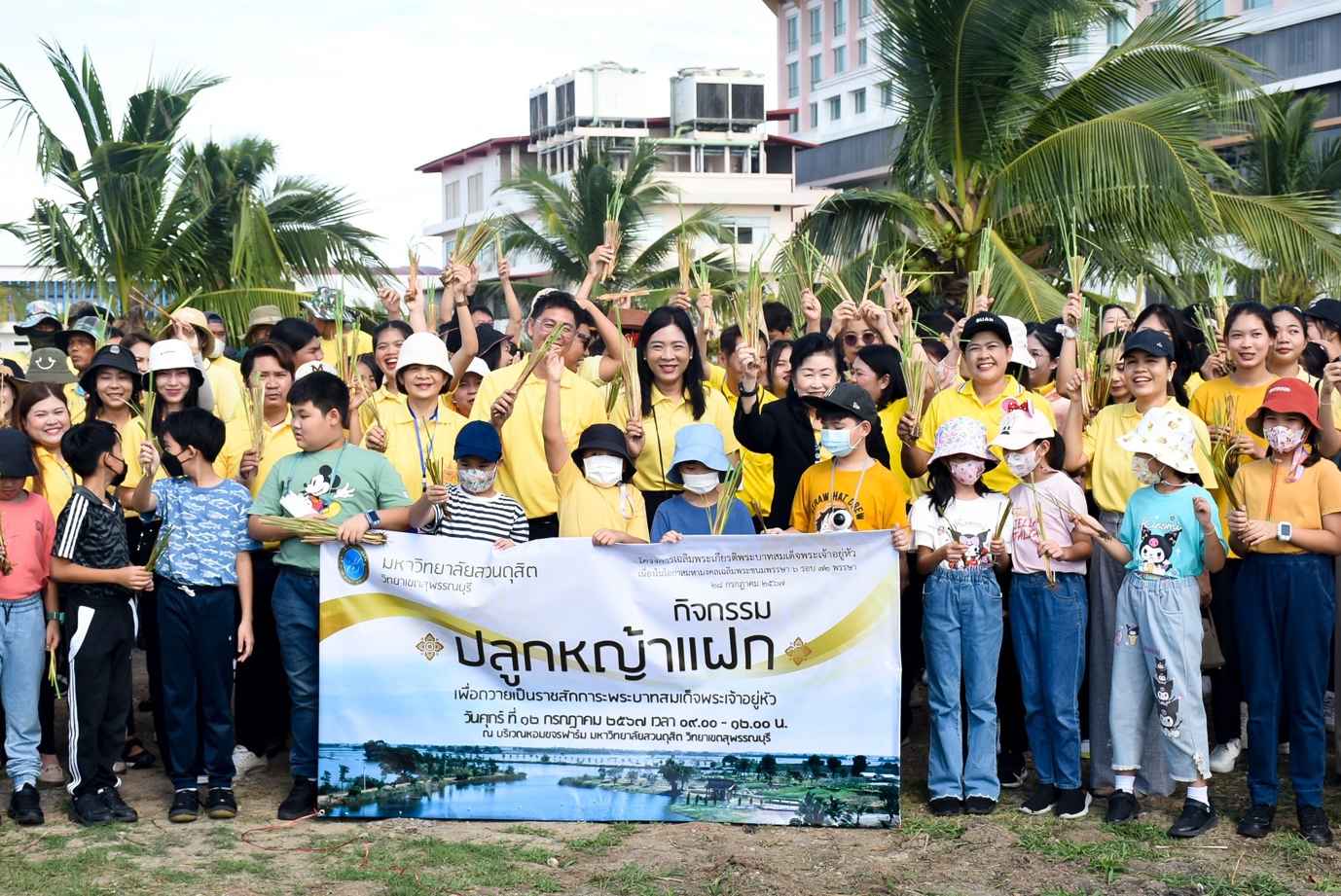
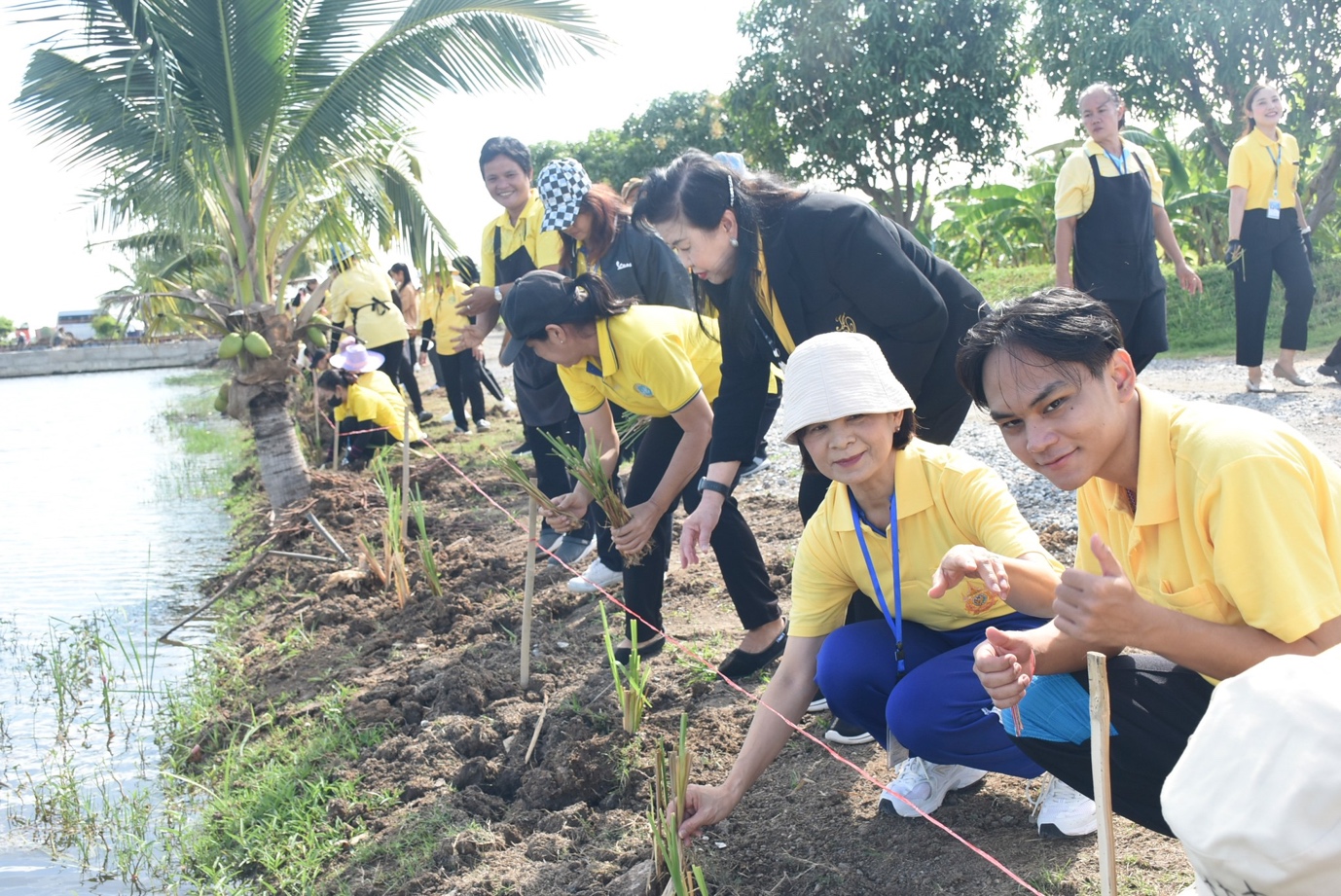
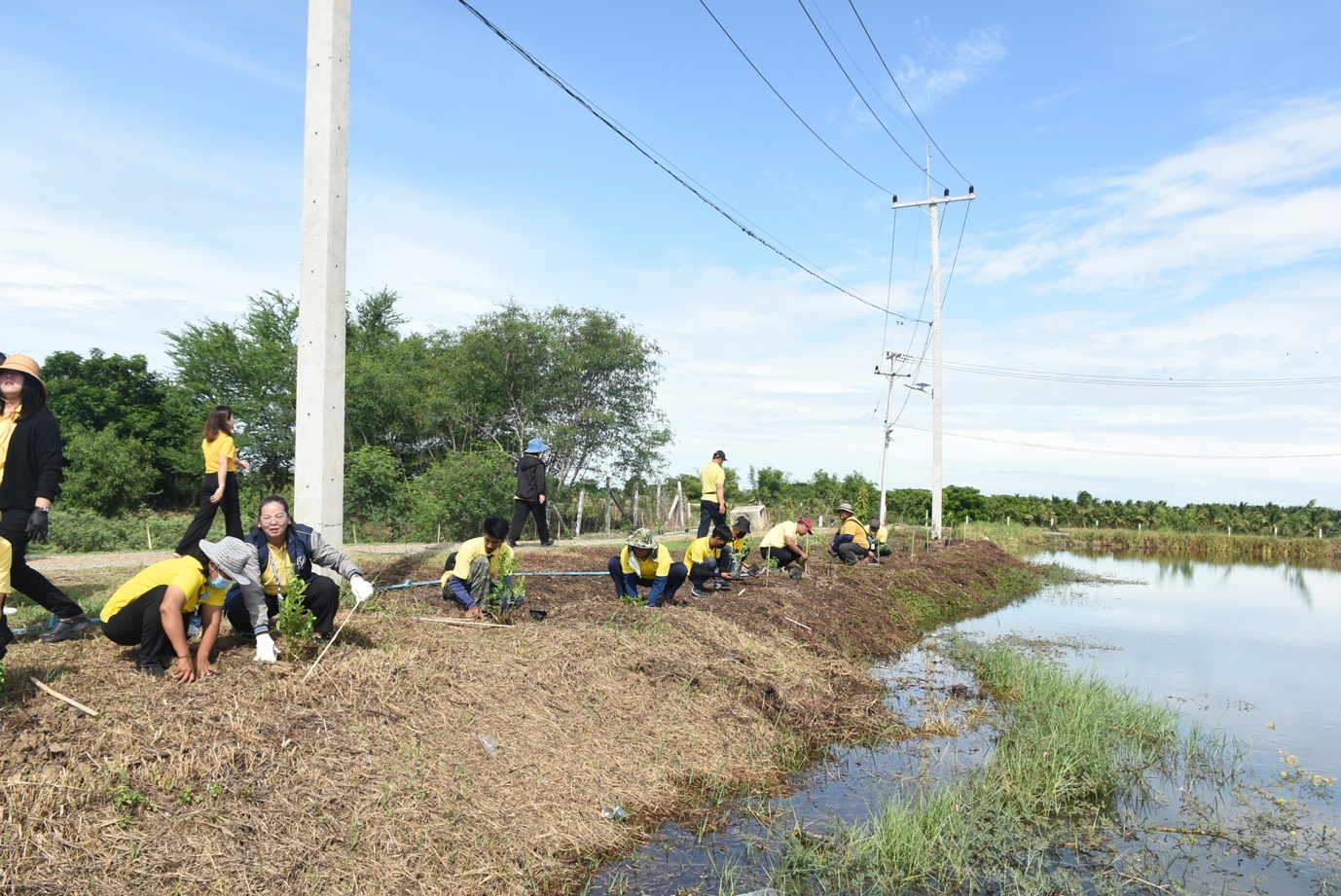
These initiatives have produced tangible environmental impacts by expanding green cover, improving soil health, and fostering biodiversity on campus. More importantly, they have strengthened the culture of sustainability awareness, responsible resource use, and environmental stewardship among students and staff. The activities directly support SDU’s strategic goal of becoming a Clean & Green University, while advancing Thailand’s national targets for carbon emission reduction, climate adaptation, and sustainable ecosystem management.
Through the integration of institutional policy and real-world practice, Suan Dusit University exemplifies how higher education can contribute to forest conservation, biodiversity enhancement, and sustainable resource managementin measurable and meaningful ways. The university’s approach demonstrates that environmental policy is most effective when it becomes an active part of teaching, research, and community collaboration. In doing so, SDU not only fulfills the intent of SDG 15.2.1 – supporting events that promote conservation and the sustainable use of land, forests, and wild areas – but also sets a replicable model for universities seeking to integrate environmental governance, academic engagement, and local action toward a more resilient and sustainable future.
Reference
